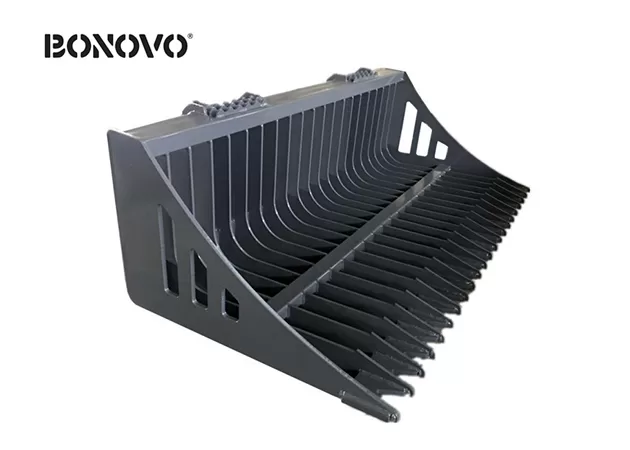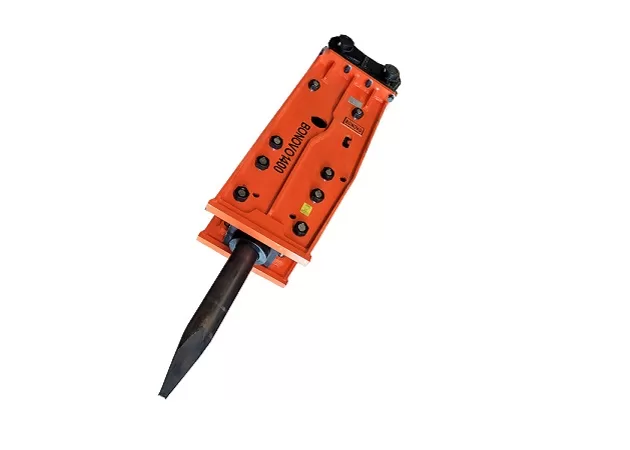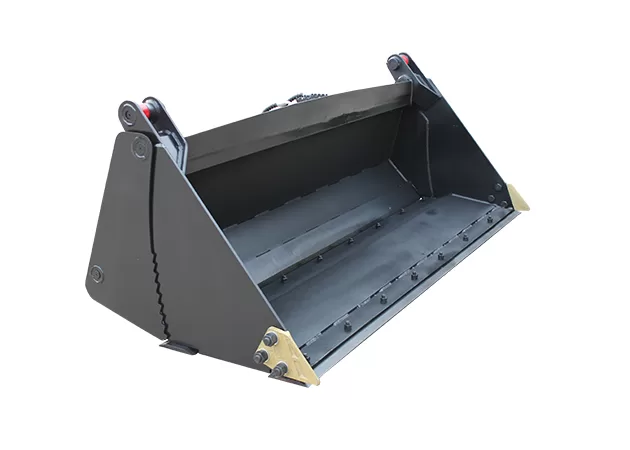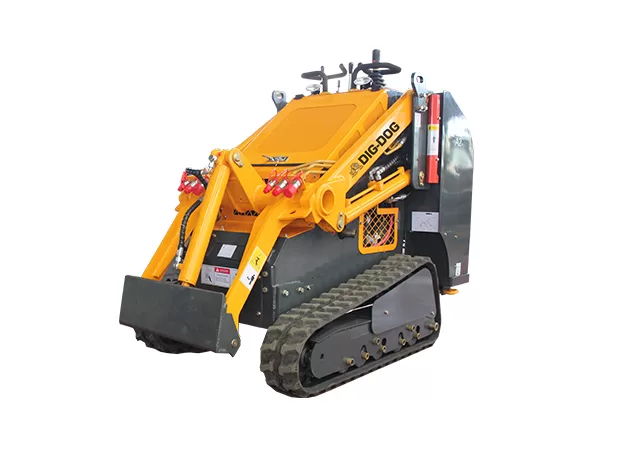Unlock Your Potential: Your Guide to Excavator Operator Certification and Mastering Heavy Equipment - Bonovo
Want to become an excavator operator and command powerful heavy equipment? Earning your excavator operator certification is the key to unlocking exciting career opportunities in construction and beyond. This article will guide you through everything you need to know about getting certified, from understanding the requirements to mastering the mini excavator. We'll explore the benefits of holding a license to operate this vital heavy equipment and how it can pave your way to a rewarding career. Keep reading to learn how to confidently operate an excavator and take the first step toward becoming a skilled professional.
Why is Excavator Operator Certification Important?

In today's construction and excavation industries, certification for excavator operators isn't just a piece of paper; it's a crucial qualification that demonstrates competence and commitment to safety. Think of it as your professional stamp of approval. Many employers now require excavator certification as a standard for hiring, and for good reason. Operating heavy equipment like an excavator involves significant responsibility. Properly trained and certified operators are less likely to cause accidents, damage equipment, or delay projects. This not only protects individuals but also ensures efficiency and productivity on the job site. Without certification, you might find it hard to operate these powerful machines legally and securing employment can become significantly more challenging.
Furthermore, excavator certification often incorporates vital safety protocols and operational best practices. Through the course, individuals learn about pre-shift inspection procedures, safe operating techniques on different terrains, and how to respond in emergency situations. This comprehensive training program equips operators with the knowledge and skills you need to handle the excavator safely and efficiently. It’s about more than just knowing how to use the joysticks; it's about understanding the potential hazards and how to mitigate them.
Do You Need a License to Operate Heavy Equipment?
The question of whether you need a license to operate heavy equipment, including an excavator, is a common one, and the answer can vary depending on location and the specific type of equipment. While a general equipment license might not be universally mandated like a driver’s license, excavator certification often serves as the industry-recognized credential. In the United States, OSHA plays a significant role in setting safety standards. While OSHA doesn't issue licenses, osha requires employers to ensure their heavy equipment operators are properly trained and deemed competent to operate their pieces of heavy equipment. This often translates to requiring certification.
Some states or municipalities may have additional requirements, potentially including a specific equipment operator license or certification. For operating heavy equipment on public roads, you'll definitely need a commercial driver’s license (CDL) if the trailer that weighs over a certain limit. However, for operating an excavator on a construction site or private land, excavator certification is generally the key qualification. Think of it as your operator’s card – proof that you’re trained and certified to handle this specific piece of equipment. Always check the federal and state regulations in your area to ensure full compliance.
What are the Benefits of Earning an Excavator Certification?

Earning an excavator certification offers a multitude of benefits, significantly enhancing your career prospects and earning potential. Firstly, it makes you a more attractive candidate to many employers. Companies prefer to hire trained and certified operators because it reduces their liability and ensures a higher level of competence and safety on their job sites. This can translate to more job opportunities and greater job security.
Beyond increased employability, certification often leads to higher earning potential. Certified excavator operators are generally considered more skilled and valuable, allowing them to command better salaries than those without certification. Your excavator operation skills, validated by certification, demonstrate your ability to efficiently and safely handle complex tasks, making you a valuable asset to any project. Furthermore, certification can open doors to advancement opportunities within your company. As you gain experience and maintain your certification, you may be considered for supervisory roles or specialized excavation projects. Investing in earning your excavator certification is an investment in your future.
How Do You Become an Excavator Operator?
The path to become an excavator operator typically involves a combination of formal excavator training and practical experience. The first step is usually enrolling in an excavator certification course offered by a reputable heavy equipment operator school or training center. These programs provide comprehensive instruction on the fundamentals of excavator operation, safety procedures, and basic maintenance. Throughout the course, you'll learn about the different parts of the excavator, including the boom dipper, and how to effectively use the joysticks to control its movements.
Most certification programs include both classroom instruction and hands-on training. The classroom portion covers theoretical knowledge, safety regulations, and inspection protocols. The practical portion provides the opportunity to operate an excavator under the guidance of experienced instructors, allowing you to develop the necessary skills you need. After completing the training course, you'll typically need to pass a written exam and a practical exam to demonstrate your competency and earn your certificate of heavy equipment operations. Some companies also offer on-the-job training programs, which can be a valuable way to gain experience while working.
What Skills Do You Need to Operate an Excavator Safely?

Operating an excavator safely requires a specific set of skills you need, encompassing both technical proficiency and a strong understanding of safety protocols. Technical skills involve mastering the controls to perform precise movements for tasks like digging, lifting, and grading. This includes the ability to smoothly and accurately manipulate the boom dipper and other hydraulic functions. Spatial awareness is also crucial, allowing the operator to maneuver the heavy equipment effectively in confined spaces and avoid obstacles.
Beyond technical skills, a strong focus on safety is paramount. This includes conducting thorough pre-shift inspections to ensure the machinery is in good working order, understanding load capacities, and being aware of surroundings to prevent collisions or accidents. Effective communication with ground personnel is also vital for safe excavator operation. Furthermore, physical strength and stamina are important, as operating heavy equipment can be physically demanding. A responsible attitude and adherence to safety regulations are non-negotiable for any excavator operator.
Where Can You Get Certified to Operate an Excavator?
Finding the right place to get your excavator certification is a crucial step in your journey to become an excavator operator. There are several avenues you can explore, including heavy equipment operator schools, vocational training centers, and some community colleges. Look for programs that are accredited and have a strong reputation for providing quality training. The Heavy Equipment Colleges of America is one example of a specialized institution offering such programs.
When researching excavator certification courses, consider factors like the program's curriculum, the experience of the instructors, and the availability of hands-on training. A good program will offer a balanced approach, covering both the theoretical aspects and the practical skills needed to operate an excavator effectively. It's also beneficial to inquire about the program's job placement assistance, as some schools have partnerships with local employers. Remember to check if the certification offered by the program is recognized by employers prefer in your region.
What Does an Excavator Operator Perform on the Job?
The daily tasks an excavator operator performs are varied and depend on the specific job site and project requirements. However, core responsibilities generally involve using the excavator to excavate trenches and foundations, dig holes, and move materials. This requires precision in controlling the machinery to achieve the desired depth and dimensions. Excavator operators also play a key role in site preparation, clearing debris and leveling ground.
Beyond digging, excavators are often used for demolition work, requiring the operator to carefully maneuver attachments to break down structures. They may also be involved in lifting and placing heavy materials, requiring a strong understanding of load limits and safe lifting practices. Daily maintenance and inspection of the excavator are also part of the job, ensuring the piece of equipment is functioning correctly and safely. Ultimately, the excavator operator is a vital member of the construction team, contributing significantly to the progress and efficiency of the project.
Mini Excavator Certification: Is It Different?

While the fundamental principles of excavator operation remain the same, mini excavator certification often involves specific training tailored to the unique characteristics of these smaller machines. Mini excavators, or mini diggers, are more compact and maneuverable, making them ideal for কাজ in tighter spaces where larger excavators can't access. Operating a mini excavator requires finesse and an understanding of its different capabilities and limitations compared to its larger counterparts.
Mini excavator certification courses typically cover the specific safety considerations for these machines, including stability on uneven terrain and awareness of the reduced swing radius. While some general excavator certification programs may include a module on mini excavators, dedicated mini excavator certification can provide more in-depth training. If your primary focus is operating these smaller machines, seeking out specialized mini excavator certification can be beneficial.
Beyond the Basics: Continuing Your Excavator Training
Earning your excavator certification is a significant achievement, but training shouldn’t end there. The world of heavy equipment is constantly evolving, with new technologies and safety procedures being introduced. Continuing education and ongoing training programs are essential for excavator operators to stay current with industry best practices and enhance their skills.
Advanced training courses can cover specialized techniques, such as operating specific attachments or handling challenging terrain. Staying informed about OSHA's updated safety regulations is also crucial for maintaining a safe work environment. Consider attending workshops, seminars, or taking online courses to expand your knowledge and refine your excavator operation skills. This commitment to lifelong learning not only improves your performance but also increases your value as a skilled heavy equipment operator.
Ready to Get Certified? Your Next Steps to Operate an Excavator.
If you're eager to get certified to operate an excavator and embark on a rewarding career, here are some key steps to take:
- Research local training programs: Search for heavy equipment operator schools or vocational centers offering excavator certification courses in your area.
- Compare program curricula and costs: Evaluate the content of different programs and their associated fees to find the best fit for your needs and budget.
- Check for accreditation and reputation: Ensure the program you choose is accredited and has a positive track record.
- Enroll in a certification course: Once you've found a suitable program, sign up and commit to completing the training program.
- Prepare for the exams: Study diligently for the written exam and practice your skills for the practical exam.
- Obtain your certification: Upon successful completion of the exams, you'll receive your excavator certification.
- Start your job search: Utilize your new certification to apply for excavator operator positions in the construction, excavation, or related industries.
Taking these steps will put you on the path to a fulfilling career as a certified excavator operator.
Key Takeaways:
- Excavator operator certification is often required and significantly enhances career prospects.
- While a general license might not be mandatory, certification demonstrates competency and adherence to safety standards.
- Earning certification leads to better job opportunities and higher earning potential.
- Becoming a certified operator involves formal training and passing practical and written exams.
- Continuous learning and staying updated on industry best practices are crucial for long-term success.
For high-quality excavator attachments to enhance your machine's versatility and efficiency, explore the range offered by BONOVO Excavator Attachments. We provide durable and reliable attachments like Excavator Buckets and Hydraulic Hammers to help you get the job done right. If you're operating a smaller machine, check out our selection of Mini Excavators.




